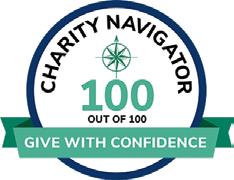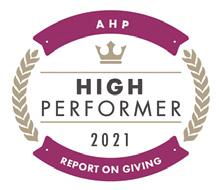2022 Charitable Impact Report
How your philanthropic investment in Banner Health makes life better in our communities


How your philanthropic investment in Banner Health makes life better in our communities

At Banner Health, we believe in a shared responsibility to improve the health and well-being of our communities. Our nonprofit mission is advanced by the unwavering support and commitment of our dedicated team members, physician partners, thousands of volunteers, and many cherished donors who so generously give of their time, talent and treasure.
Two foundations support the work of Banner Health:
Established in 2001, the Banner Health Foundation secures and stewards charitable contributions to advance Banner Health’s mission, investing in facilities and programs that support advancements in care, research, medical education, patient services, and a variety of community programs.
Established in 2006, the Banner Alzheimer’s Foundation secures and stewards charitable gifts to advance the mission of the Banner Alzheimer’s Institute, including groundbreaking research initiatives and pioneering prevention studies, family outreach, counseling, and support services.
Contributions from generous donors are invested locally to support patient care programs and services operated by Banner’s many hospitals and health care facilities across Arizona and, most recently, in Wyoming—improving the lives of millions of people every day. Since Banner Health’s inception in 1999, more than $289 million in charitable gifts to the Foundations have been re-invested in Banner Health services, facilities, and programs to meet the health needs of our diverse communities.
Last year, Banner Health provided $1 billion worth of community benefit, including some $177 million in charity care, patient financial assistance, and subsidized services. Philanthropic support allows Banner Health to care for patients from all walks of life—regardless of their ability to pay—and to conduct groundbreaking research, educate and train tomorrow’s health care professionals, and offer a variety of special services, community health education, and supportive resources.
Thank you for your generous philanthropic support in 2022.
2022 was a year of new beginnings for many of us. With the pandemic having steadied, most of our lives returned to something resembling normal in the past year. We hope the year brought you opportunities to reconnect with loved ones, travel, and enjoy activities and hobbies you may have missed over the past three years. And as always, we hope you and your loved ones are enjoying good physical and mental health.
While your generous support for Banner Health has remained constant, 2022 saw an increase in giving reflective of a collective shift away from the crisis of a global pandemic back to the basics—quality medical care for children facing injury or illness, the best cancer care and treatment for our loved ones, Alzheimer’s care and prevention research initiatives, and better access to quality health care throughout our communities. This is evident in the types of gifts you gave in 2022, the priorities you shared with us, and the myriad ways you showed up for Banner Health and our patients.
Thank you for partnering with us to invest in the future of health care. Your generosity and engagement help Banner deliver on its promise to provide compassionate, expert care for our diverse communities. Your gifts support a wide range of patient care and community health programs, advance research initiatives, train tomorrow’s physicians and nurses, educate our community about disease prevention, safety, and wellness, and provide so many “extras” that make the hospital experience better for patients and their families.
The stories on the following pages offer a glimpse of the many Banner Health programs and initiatives supported by your philanthropic investments. While this report showcases some promising initiatives across our vast health care system, there are more than 500 Banner Health programs and areas of care sustained and strengthened by your charitable gifts each and every year.
Whatever Banner program or area of care you chose to support in 2022 and in the future, rest assured that every dollar donated is being put to the highest and best use to serve our patients and our communities. Thank you for your generosity, trust, and continued partnership. We look forward to continued recovery and healing for our communities, our frontline professionals who have so bravely served our patients, and for you and your loved ones.
With gratitude,
Andy Kramer Petersen Steven J. Hilton President & CEO Board Chairman Banner Health Foundation Banner Health Foundation Banner Alzheimer’s Foundation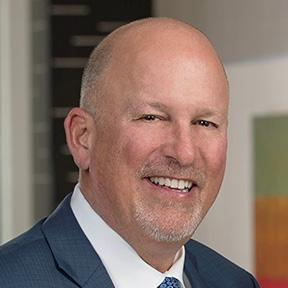
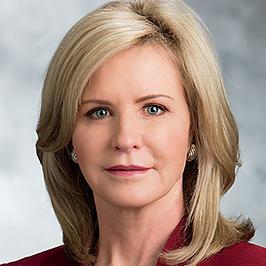
9,860 Total Donors $30,972,444 Total Contributed
$26,536,706
Total Distributed to Banner Health programs, medical centers, and community health services
$167,567,832
Total Assets of Banner Health Foundation & Banner Alzheimer’s Foundation

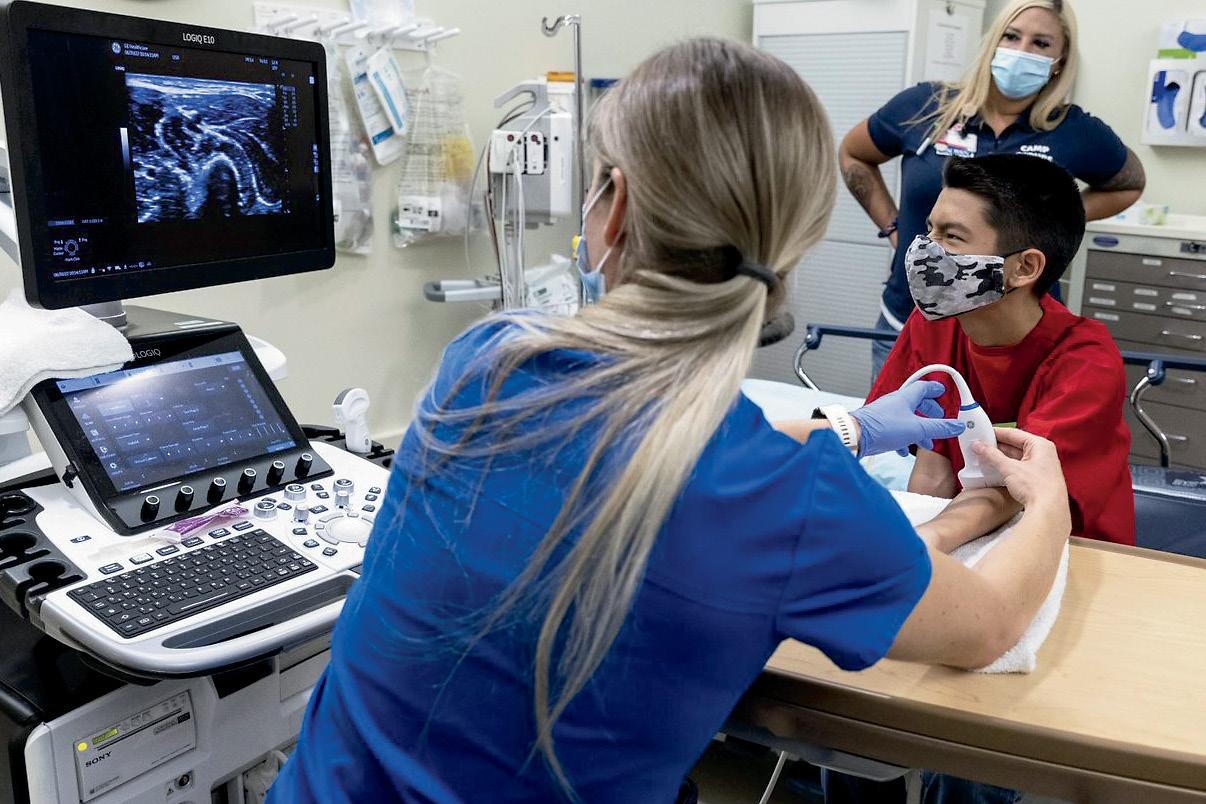
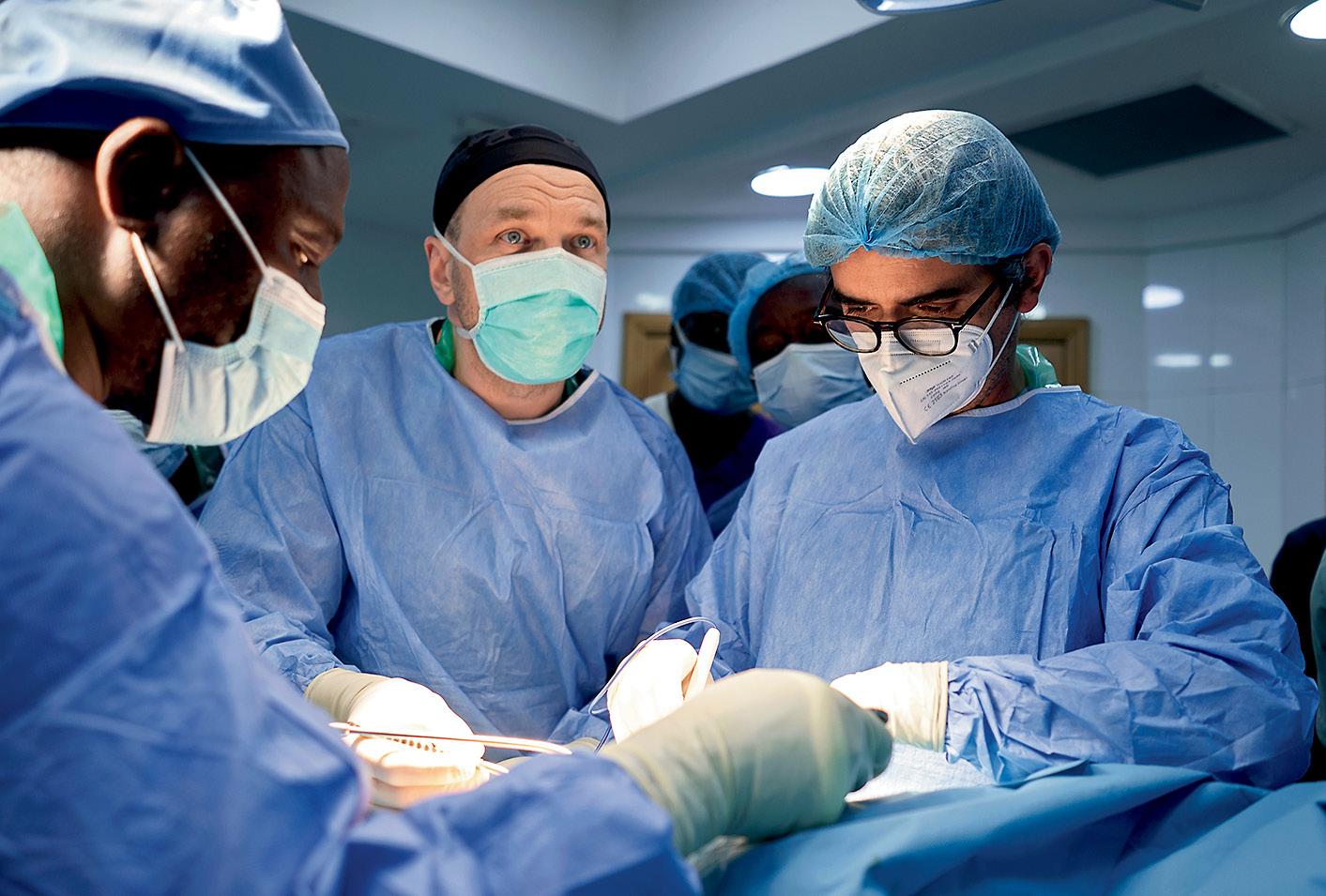
High quality, accessible, affordable health care is a vital component of a thriving community. However, today’s health care workforce— both in the United States and across the globe—is facing an array of challenges while health care systems are under increasing pressure. Shifting demographics, changes in care delivery, clinician burnout, high labor costs, and staffing shortages pose serious threats to the ability of health care systems, like Banner Health, to provide the care our communities need. The COVID-19 pandemic exacerbated these issues and brought the critical need for health care workforce development and retention into sharper focus.
As Arizona’s largest private employer and largest nonprofit health care system, Banner Health takes seriously our responsibility to our professional workforce. Our doctors, nurses, technicians, and front-line staff work diligently, with dedication and compassion, to keep our communities healthy. In return, Banner does everything possible to care for and support them.
Like health systems across the country, Banner Health is facing critical staffing shortages that could jeopardize access to care in the communities we serve. According to the American Hospital
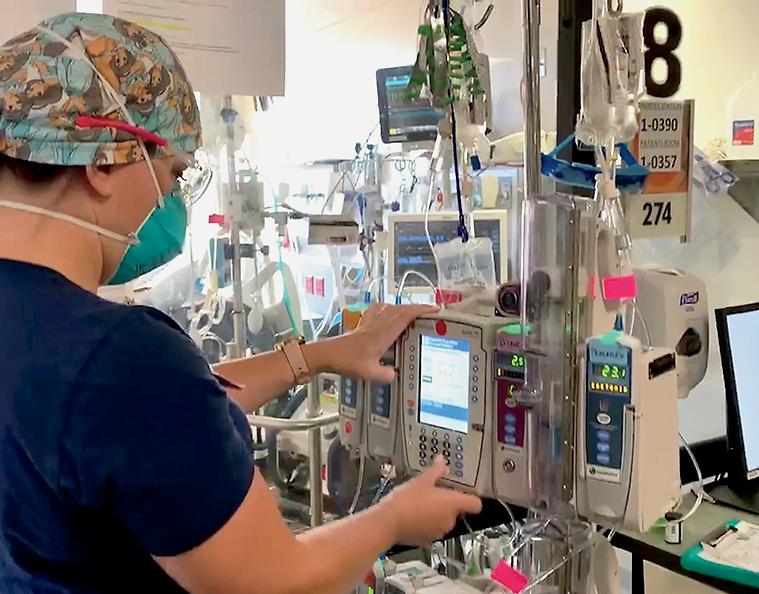
Association, the U.S. will face a shortage of up to 124,000 physicians by 2033. From nurses changing occupations or exiting the labor force, the U.S. Bureau of Labor Statistics projects the need for 1.1 million new registered nurses nationwide by 2030. Within the next five years, the U.S. faces a projected shortage of more than 3.2 million entry-level health care workers such as medical assistants, home health aides, and nursing assistants, according to a Mercer report.
Because a talented, engaged, and diverse workforce is critical to delivering exceptional patient care, Banner Health has made it a priority to support clinical professionals—professionally, physically, mentally, and emotionally. By offering opportunities for ongoing education and training, professional development, and career growth, plus programs and services to support employees’ physical and mental well-being, Banner strives to retain and grow our valued workforce and attract new talent to serve in critically important roles.
Philanthropic investment from donors and community partners has been critical to the success of these initiatives, as these
Ninth-grader Ian Richardson, participating in Camp Scrubs at Banner Ironwood Medical Center. He says the experience opened his eyes to nursing as a potential future career.activities fall outside the traditional model of care delivery and reimbursement.
Before the COVID-19 pandemic, Banner recognized the importance of team member wellness, particularly in light of a nationwide projected nursing shortage. In 2018, Banner implemented My Well-Being, a comprehensive program providing multi-modality wellness tools and resources for all team members, free of charge. This program expanded in 2020 to meet demands during the pandemic. Nearly 40,000 Banner Health professionals have benefited from counseling services, and 6,887 have engaged in individual appointments with a mental health professional, with one in five referred to more meaningful forms of care. More than 200 Banner leaders have become certified in Mental Health First Aid in partnership with the National Council on Mental Wellbeing, leading an internal campaign to reduce stigma around mental health in medicine and foster a culture of caring. Some 12,500 staff have watched over 83,000 on-demand videos on well-being and mental health.
In addition, Banner identified physician burnout as a looming threat to health care that must be uniquely addressed. In 2019, Banner Health implemented a program called Cultivating Happiness in Medicine (CHIM) aimed at reducing burnout, building resiliency in physicians and advanced practice providers, and allowing them to bring their best selves to work. The physicianled CHIM strategy provides specific opportunities for Banner’s providers to be their healthiest, best selves by accessing research-driven resources that have already reduced burnout, as demonstrated through objective surveys and feedback.
To build a pipeline of people to join—and stay—in the health care workforce, Banner’s Career Pathways program helps current employees build their careers. Team members in entry-level roles are given specific steps, tools, and financial support to complete their education and move into vitally important bedside roles that directly affect patient care: Certified Nursing Assistant, Certified Medical Assistant, or Certified Sterile Processing Technician. The program was funded with a $1.2 million grant from Maricopa County, and recently received a boost with a $150,000 grant from the Phoenix Industrial Development Authority. Program partners include Brookline College, Pima Medical Institute, and Maricopa Community Colleges.
“People are at the center of all we do and by investing in our team members’ future, Banner will continue to be a great place to work.” said Julie Ann Alvarado-Dubek, Banner Health EVP and Chief HR Officer. “Our Career Pathways program provides a meaningful journey where our team members can achieve their aspirations while optimizing our workforce.”
Building the pipeline of professionals considering health care careers starts even earlier. Banner Ironwood Medical Center’s Camp Scrubs is a week-long, hands-on, immersive experience for high school students to gain first-hand knowledge of a hospital setting as they explore potential careers in health care.
Participants say that before their camp experience, they thought of health care careers as being only for doctors or nurses, but afterward, they understood the opportunities available in many areas of hospital operations. After attending Camp Scrubs, 9th grader Ian Richardson says he found the program not only fulfilling, but said it also heavily influenced him to choose nursing as a possible career choice. “It’s definitely changed my perspective on health care and what I want to do in health care,” Richardson said. “I mentioned the nursing thing to my mom and she said, ‘Yea! That’s my kid,’ because she wanted to do nursing too.”
In Tucson, Banner Health is advancing health care education through partnerships with Kino College, Pima JTED (Joint Technical Education District), Pima Community College, and the University of Arizona, which created Arizona’s first statewide academic health system. Students complete hands-on clinical rotations at Banner’s Tucson facilities, while scholarships support students with financial need.
The global nursing shortage pre-dates the COVID-19 pandemic but has been felt more acutely in the past three years as intense pandemic conditions left many nurses in search of new roles and careers. Simultaneously, the pandemic shined a light on the critically important role that nurses play in patient care, particularly in times of high inpatient volumes and acuity. Nurses who have remained in the field say they want training and education, financial support, and good working conditions.
Donors to the Banner Health Foundation have funded several nursing scholarships to help Banner nurses continue their education and gain advanced degrees and certifications.
For Advanced Practice Registered Nurses who do not have Operating Room experience, Banner’s First Assist Program Center offers opportunities for upskilling, giving these professionals the knowledge and skills to provide safe, competent surgical first assistant services.
Of course, it takes many different types of professionals to keep a large health care system running. To build and reinforce a culture of inclusion and belonging across all 52,000 employees, Banner Health promotes and cultivates a culturally diverse workforce. “We respect and value the various backgrounds and differences among our team members that allow them to be who they are. We believe leveraging these unique perspectives, experiences, and talents not only enhances our Banner family, but supports our effectiveness and success as an organization,” says Dubek.
Banner Health celebrates differences and unites those with shared experiences for greater connection and support, offering Employee Resource Groups for Veterans, Women in Leadership, Black and Latinx team members, LGBTQIA+ individuals, and most recently, team members with disabilities.
To learn more about supporting Banner Health’s Workforce Development programs, visit give.bannerhealth.com/workforce.
Because most lung cancer cases are diagnosed at later stages—when the cancer has already spread to other organs and treatment options are less likely to cure the disease—more Americans die of lung cancer than any other type of cancer.
One Valley family’s generous gift made in 2019 is changing this sobering statistic. Rick and Shelley Kuhle donated $1 million to the Banner Health Foundation four years ago and since then, their investment has transformed Banner MD Anderson’s Lung Cancer program by expanding access to screening and educating the community about the potentially life-saving importance of early detection.

Through the Kuhle Family Lung Cancer Screening & Early Detection Program established in 2019, more than 5,500 patients have been screened for lung cancer; 2022 alone saw a four-fold increase over 2019 in the number of screenings. A total of 86 lung cancer cases have been diagnosed, and another 850 patients were
identified with lung nodules with a grade of Lung RADs 3 (likely benign, with followup required) or Lung RADs 4 (suspicious or very suspicious). Representing our highest-risk patients, all RADs 3 and RADs 4 cases are now being presented at the system-wide tumor board, a group of experts including thoracic radiologists, interventional pulmonologists, thoracic surgeons, nurse specialists, patient navigators and others. The board meets regularly to discuss cases and share knowledge to determine the best possible treatment plan for individual patients.
Banner MD Anderson has accredited and operationalized 17 lung cancer screening sites, including six Banner MD Andersonaffiliated hospital sites, thanks to the Kuhle family’s investment. As of 2022, a total of 11 Banner imaging outpatient sites have been added, vastly increasing this program’s reach and lowering patient and health system costs.
In April 2022, Banner MD Anderson’s Gilbert
campus acquired a Cios Spin device, a mobile C-Arm that provides intraprocedural 3D imaging. This machine allows pulmonologists to biopsy lung lesions when they are less than 1-2 cm in size or in difficult locations, and potentially catch lung cancers when they are stage I and have a >85% five-year survival rate. It also allows pulmonologists to accurately “tattoo” a small lesion, enabling surgeons to easily identify and remove a smaller portion of lung, thereby preserving more of the patient’s function.
The first of its kind available in the East Valley, the Cios Spin device eliminates the need for patients to travel for this level of early lung cancer detection. The team performed 53 imaging studies with the device within the first few weeks of receiving it in 2022, saying it has been instrumental in helping obtain more accurate biopsies.
The Kuhle family’s gift also supports lung cancer research and community outreach The Kuhle family’s generous gift created a Lung Cancer Screening & Early Detection Program at Banner MD Anderson Cancer Center Kuhle family investment is helping Banner MD Anderson save livesto educate health care providers and community health organizations about the importance of early lung cancer screening and the resources available. As pandemic restrictions have relaxed, the team has increased direct patient outreach through health fairs, presentations at senior centers, and educational materials located in Banner Health Centers.
The Kuhle family felt it vitally important that their gift support tobacco and vaping education for young people to prevent future cases of lung cancer and disease. The community outreach team is working with local school districts to begin educational efforts and provide resources to middle school and high school students—the age group where this type of education is proven to have the greatest impact. Funding will support teachers in becoming certified Vaping Prevention Specialists through the American Lung Association and provide proven vaping education programs and materials in schools.
“We are incredibly grateful to the Kuhle family for their generous gift that is making our vision for an early lung cancer detection program a reality here in Arizona. On behalf of everyone at Banner MD Anderson, thank you,” says Amanda Dean Martin, DNP, Chief of Advanced Practice and Clinical Integration at Banner MD Anderson.
To support Banner MD Anderson’s cancer programs, visit give.bannerhealth.com/cancer.
The T.W. Lewis Foundation recently made a $3 million philanthropic gift to expand the T.W. Lewis Melanoma Center of Excellence at Banner MD Anderson Cancer Center. The Melanoma Center was established thanks to a $2 million gift from the T.W. Lewis Foundation in 2016, along with support from community partners and donors.
Since opening in November 2017, the T.W. Lewis Melanoma Center of Excellence has treated more than 1,900 new patients with melanoma, with total patient visits topping 22,000. The research team has launched five new melanoma clinical trials, giving patients access to some of the most promising new treatments and helping to advance medical discoveries to potentially benefit future patients. With a dedicated vehicle wrapped with T.W. Lewis Melanoma Center of Excellence branding and a shade canopy, the community outreach team has held more than 250 events reaching some 110,000 people on the topics of sun safety, skin cancer prevention, and the importance of screening.
The T.W. Lewis Foundation’s gift will expand the melanoma program to new clinical sites across the Valley, including the northwest valley and central Phoenix, to care for Arizona’s growing population of melanoma patients. Funding will support recruitment and hiring of nurse navigators and research and data coordinators, as well as expansion of the community outreach program to bring melanoma education, screening, and advocacy information to more people in the community. Funds will also assist patients with the cost of genomic profiling and will support professional education of health care providers across the country on the topic of melanoma and skin cancer.
To support the melanoma program, visit give.bannerhealth.com/cancer and choose T.W. Lewis Melanoma Center of Excellence from the gift designation menu.
An empty parcel of land adjacent to Banner Gateway Medical Center and Banner MD Anderson Cancer Center in Gilbert will soon become a community of two-bedroom, two-bath, fully furnished homes for use by cancer patients who travel more than 30 miles each way for treatment.
Taylor Morrison Homes is building and donating an initial six fully furnished homes to open in 2024, with plans to build and donate up to 10 more homes in the coming years.
“Treatment is complex and emotional, but through our donation, we treasure the opportunity to flex our strengths as a homebuilder to build places of sanctuary for patients and their loved ones while they navigate this challenging time in their lives,” said Taylor Morrison Chairman and CEO Sheryl Palmer. “For Taylor Morrison to play a role in offering some relief and enabling patients to focus on healing is such a gift.”
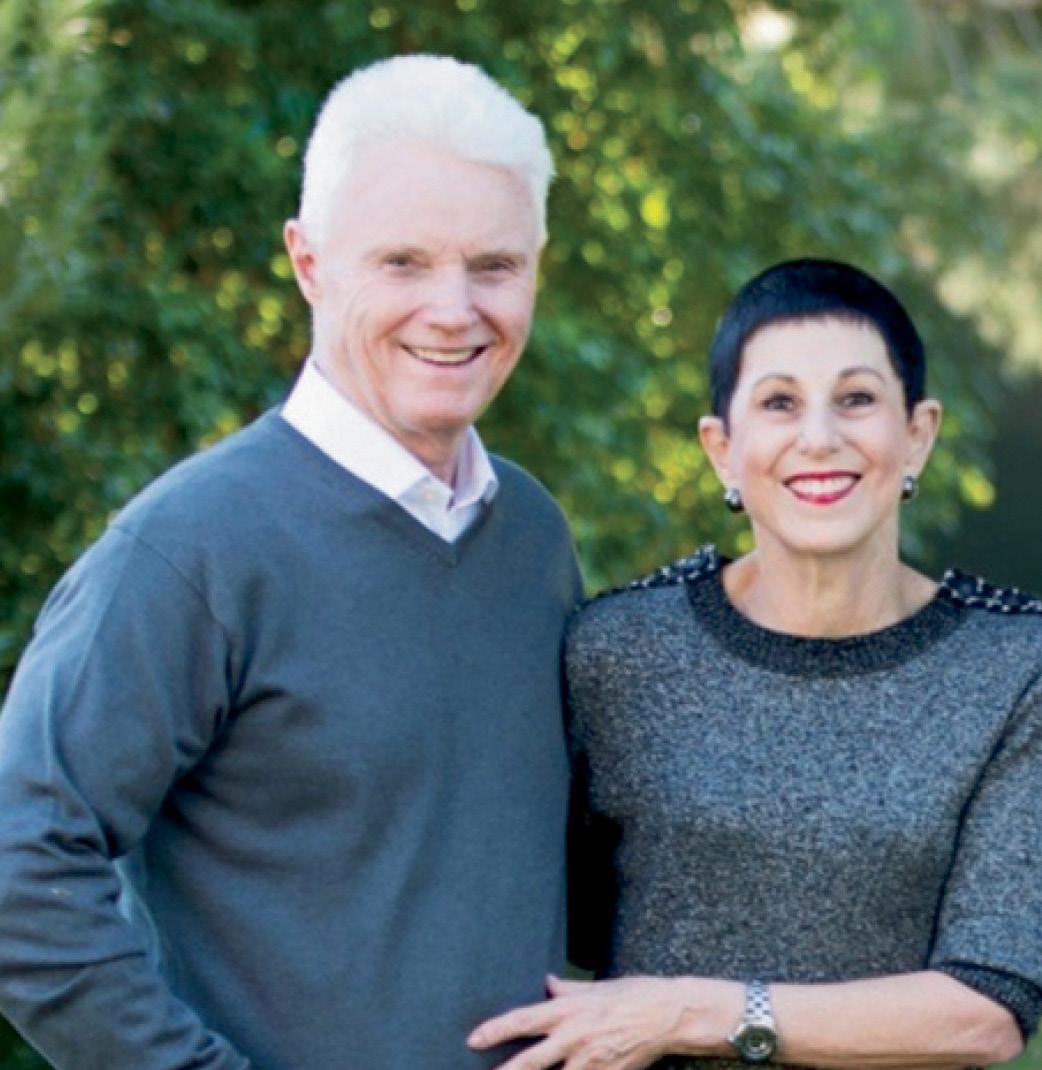
Last year, thousands of patients traveled more than 30 miles each way for care at Banner MD Anderson, and 330 of those patients came from outside of Arizona. The first six homes will provide lodging for more than 60 patients in need each year, providing the assurance of a safe and comfortable home while receiving treatment.
To support the Home Away from Home program, visit give.bannerhealth.com/HAFH.

Fluent in six languages and with advanced degrees from MIT, Harvard Business School, and the University of GrenobleFrance, Tucson real estate investor Mike Kasser clearly has a sharp mind. That’s why he became concerned recently when he began struggling with his memory.
“I had a relative who had Alzheimer’s and I worried it could eventually impact me. When I found out there was an established center in Tucson, I was very enthusiastic,” says Mike. He met with Dr. Allan Anderson, Executive Director of the Banner Alzheimer’s Institute Toole Family Memory Center in Tucson.
Testing showed that Mike, now 82, did not have the pathological hallmarks of Alzheimer’s disease. Instead, Dr. Anderson felt his sleep struggles combined with normal age-related cognitive decline could be causing his memory lapses. Mike was
relieved, and thankful to have the resources of the world-class Banner Alzheimer’s Institute and its Toole Family Memory Center less than a mile from his home. And, recognizing the importance of Alzheimer’s research, Mike volunteered to participate as a healthy test subject in a clinical trial investigating a potential new treatment.
Mike and his wife Beth are generous community members, and recently added BAI to their list of supported charities. The Kasser’s generous gift comes with the honor of naming the Physical Therapy room at the Institute, while it also served to furnish and stock the Wellness Center. Patients can enjoy group fitness and wellness classes, such as chair yoga and boxing for those with Parkinson’s disease.
Since its opening in 2020, BAI Tucson has seen tremendous growth: doubling the number of new patient visits and return
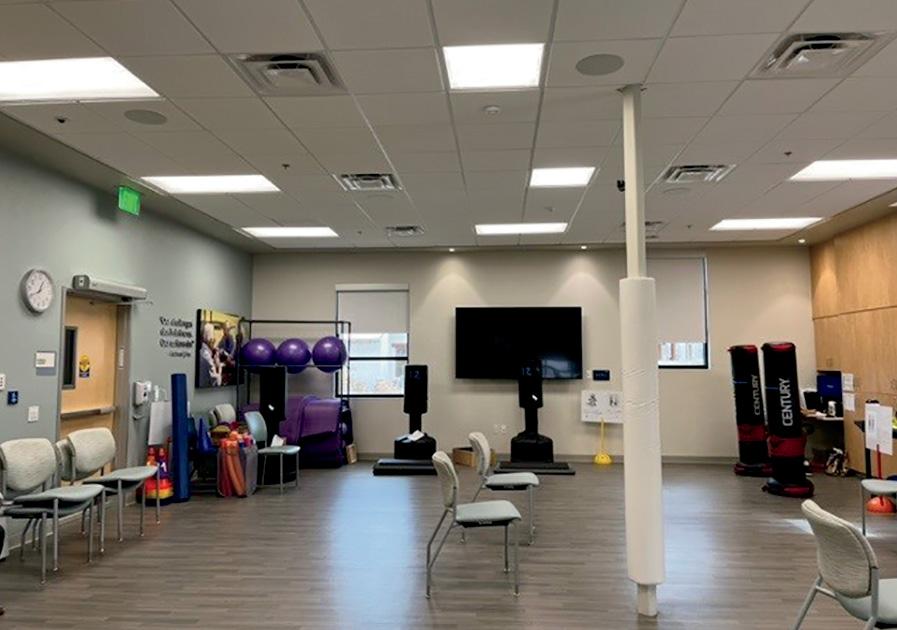
visits and tripling the number of Family & Community Services visits. Meanwhile, the newly opened Neuro Wellness program already boasts a robust schedule of classes that take place in the stunning new Wellness Center. These classes are offered free of charge thanks to charitable investment by donors and community partners.
“Having BAI here in Tucson is an insurance policy, not only for me but for others. If it weren’t there and I were to develop Alzheimer’s, what would I do? It’s a charity where I was thinking of myself as a potential user of the facility, but it will help so many people in our community,” Mike explains.
To support Banner Alzheimer’s Institute – Tucson, visit give.bannerhealth.com/alzheimers and choose Toole Family Memory Center from the gift designation menu.
Mike and Beth Kasser, left, are ensuring Southern Arizona has world-class Alzheimer’s care and resources now and for generations to come.Thanks to a $250,000 grant from Maricopa County, along with significant philanthropic investment by the J. Orin Edson family, Banner Alzheimer’s Institute is expanding a virtual training and mentoring program for Phoenix metro area physicians and other primary care professionals to help them effectively treat patients with cognitive disorders, including Alzheimer’s and related dementias.
The Dementia ECHO (Extension for Community Healthcare Outcomes) is a free, 12-week course that will empower Banner Alzheimer’s Institute to train up to 250 frontline clinicians to feel more capable in diagnosing and managing memory disorders, while aiming to help patients and caregivers receive more effective care from local providers they know and trust.
“The Maricopa County grant helps us expand the program, thus helping to reduce disparities in health care access in the community,” said Ganesh Gopalakrishna, MD, associate clinical medical director for BAI’s Stead Family Memory Center in Phoenix.
Program participants will connect virtually with instructors/mentors who specialize in Alzheimer’s and related dementias. Each session will include lectures on evidencebased practices on topics such as remote cognitive testing; medications; behavior management; disease progression; caregiver support; conveying diagnoses, prognoses, and issues such as driving, advance directives, and end-of-life care.
More than six million Americans have dementia, and as the proportion of older adults continues to grow in Maricopa
In Native American communities, music is an integral part of important ceremonies, celebrations, and traditions. Music is also a tool that can connect, soothe, motivate, distract, and bring joy to people living with Alzheimer’s disease or a related dementia.
Walk With Me was the theme of the Banner Alzheimer’s Institute’s 16th Annual Conference on Native Americans and Alzheimer’s Disease in October 2022, in partnership with Arizona Tribal communities and Native American health and human service organizations.
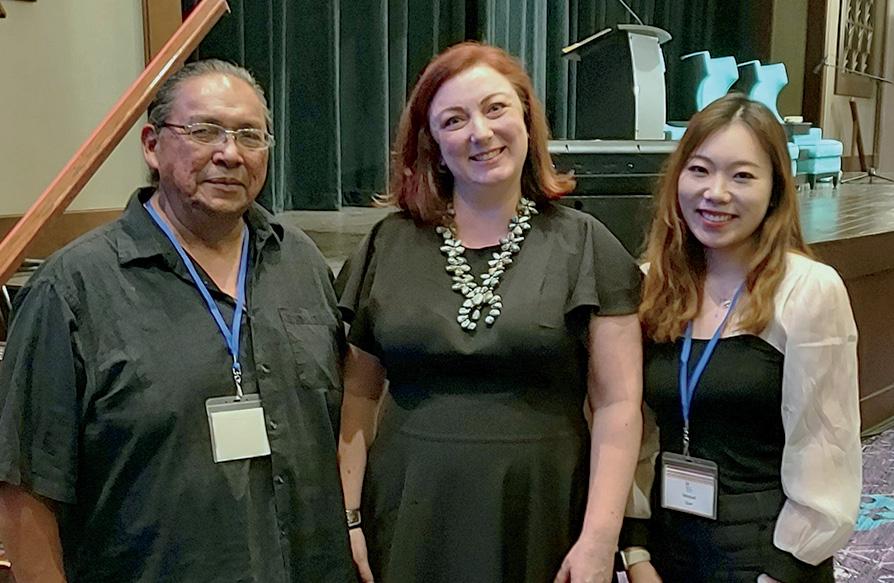
Music served as the centerpiece of the conference, exploring how to use it effectively to increase quality of life for both
the person living with memory loss and care partners. Banner Alzheimer’s Institute, Canyon Records and Sunshine Music Therapy partnered to create, and launch Walk With Me —a music CD featuring various Native American artists, while training participants about how to use it to maximize benefit with families.
“From learning the science behind music and the brain, to reflecting on personally meaningful songs for a playlist, to power poses, this year’s conference offered a unique opportunity for attendees to actually experience some of the vast benefits music can provide to both the person and the care partner,” says Heather Mulder of BAI.
County, more Arizonans will be living with Alzheimer’s and related dementias. Banner Alzheimer’s Dementia ECHO launched in 2020 with plans to expand across Banner Health and other health systems, and to attract care providers from a range of disciplines in diverse and underserved communities.
To support the Dementia ECHO program, visit give.bannerhealth.com/alzheimers and choose Edson Family Support Fund from the gift designation menu.
To support this program, visit give.bannerhealth.com/alzheimers and choose BAI Native American Outreach from the gift designation menu.
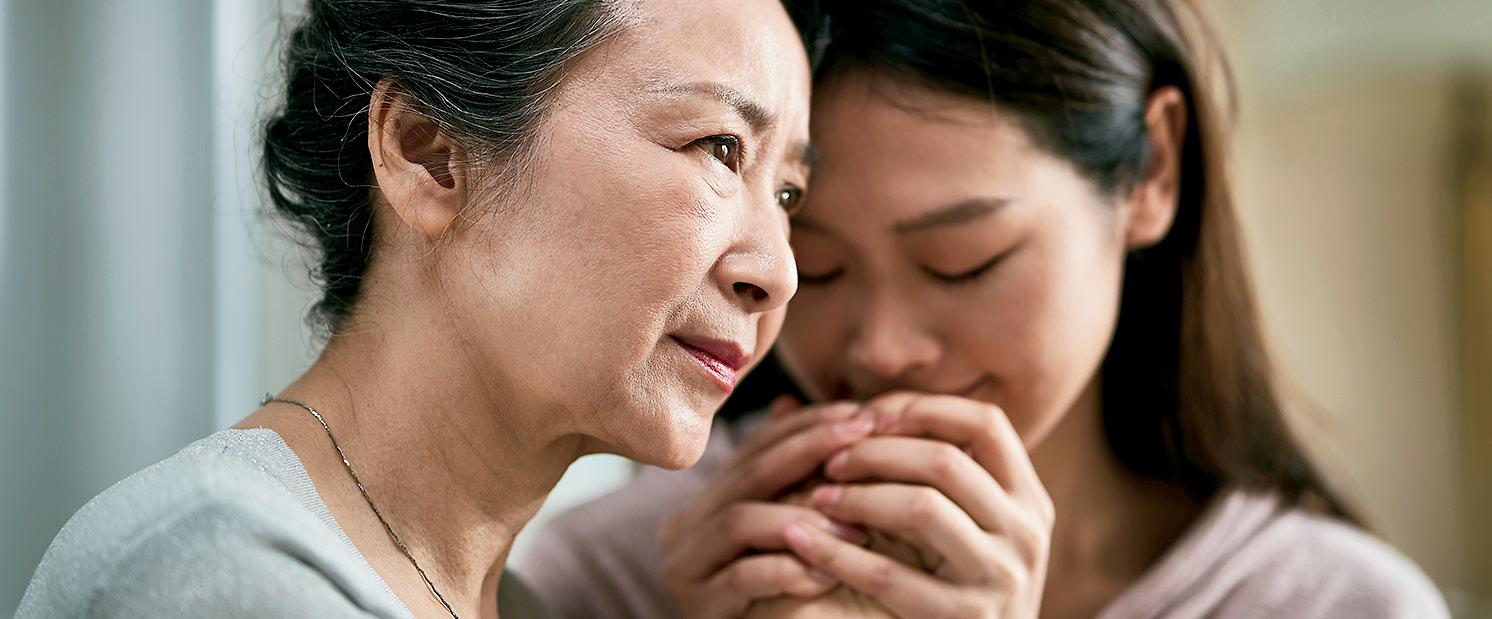
$5 million philanthropic investment from the Stead family shines a light on often misdiagnosed disease
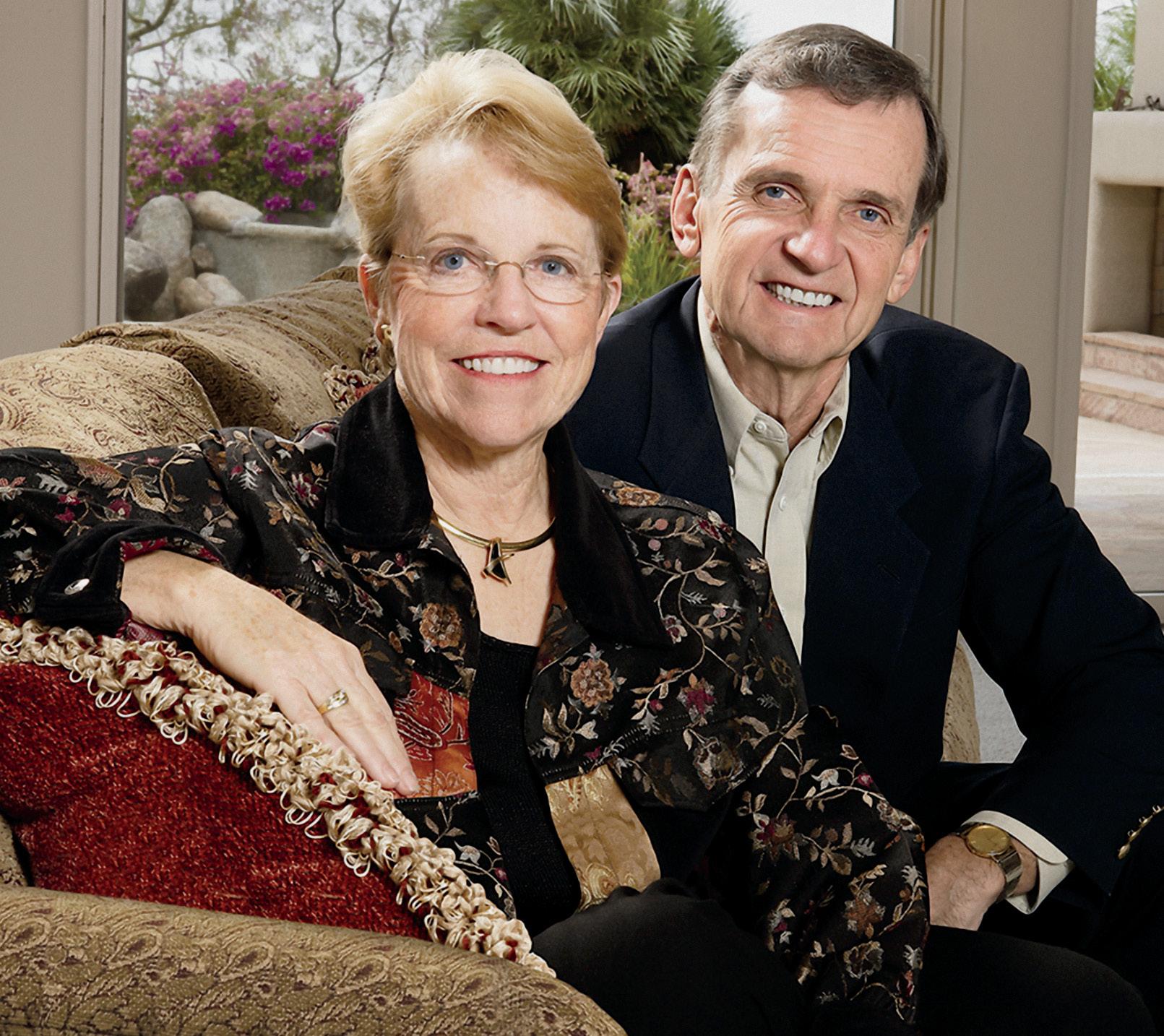
Patients struggling with a reversible, yet often misdiagnosed, condition known as Normal Pressure Hydrocephalus will now have a dedicated center for diagnosis and treatment close to home, thanks to a $5 million philanthropic gift from Jerre and Mary Joy Stead. The center will be part of Banner – University Medicine’s Brain & Spine Institute and located at the new Banner Health Center Plus facility opening at Camelback and 44th Street in 2023.
Long known to physicians but nonetheless underdiagnosed, Normal Pressure Hydrocephalus is a potentially reversible cause of instability while standing or walking, loss of bladder control, and dementia-like symptoms. NPH affects some 750,000 Americans, according to the Hydrocephalus Association, though the true incidence is unknown. Of those, less than 20% receive an appropriate diagnosis;
an even smaller number are offered or receive effective surgical treatment.
Misdiagnosis is due, in part, to symptoms resembling those of other movement disorders such as Alzheimer’s and Parkinson’s disease and the normal process of aging. It is widely believed that 10% of those diagnosed with Alzheimer’s disease may instead actually have NPH. As patients age, the prevalence of the disease increases dramatically, from 0.2% among adults in their 70s to 6% among adults in their 80s.
About 15,000 Arizonans have an NPH diagnosis. As the population grows, experts predict more than 200 new diagnoses per year and believe that 10 to 20 times as many people have NPH without a diagnosis.
As the first formal NPH program in Arizona,
the Center for Normal Pressure Hydrocephalus will be an innovative, multidisciplinary clinical care and research program exclusively devoted to the disease. The center will operate under the direction of Dr. Peter Nakaji, Chair of the Department of Neurosurgery at Banner – University Medical Center Phoenix, and an internationally renowned neurosurgeon.
“Our aspiration is to use Mr. and Mrs. Stead’s generosity to revolutionize the understanding and care of NPH worldwide by building a destination center where patients can receive the complete range of care they need from a multidisciplinary team of world-class experts as well as access game-changing research,” Dr. Nakaji said. “We are extremely grateful to Mr. and Mrs. Stead for believing in this vision and helping us to deliver transformative care to patients in need of the best neurological care.”
Mary Joy and Jerre Stead’s most recent investment will allow Banner’s Brain & Spine Institute to establish a dedicated center for the diagnosis and treatment of Normal Pressure Hydrocephalus.Reaching underserved youth athletes is an important goal of Banner Sports Medicine Scottsdale, slated to open in summer 2023 as a comprehensive, one-stop destination for numerous sports medicine services and specialists under one roof. That’s why the Banner Health Foundation established the Game On: Youth Athlete Support Fund to provide preventative care to Arizona youth through three distinct assessments that have been proven to reduce injury and promote participation in sports.
“Participation in sports is, unfortunately, not always equitable, as sports physicals and baseline assessments can often mean out-of-pocket costs to a family,” says Dr. Amy Overlin, Primary Care Sports Medicine Physician with Banner Health.
“The Game On Fund helps level the playing field for youth across Arizona so they can participate without any barriers to play.”
In 2022, the Game On Fund hosted school and district events in the Valley and in Tucson to bring these no-cost assessments to students. Nearly 1,400 students received sports physicals while some 2,500 underwent baseline concussion testing. These free events and services were made possible by gifts to the Banner Health Foundation from the Arizona Lottery, Phoenix Suns Charities, Arizona Coyotes, Tucson Roadrunners, Tucson Conquistadores, Elan’s Financial Services, and Tony and Milena Astorga. Their support saved youth and their families approximately $110,000 combined in required pre-participation testing.
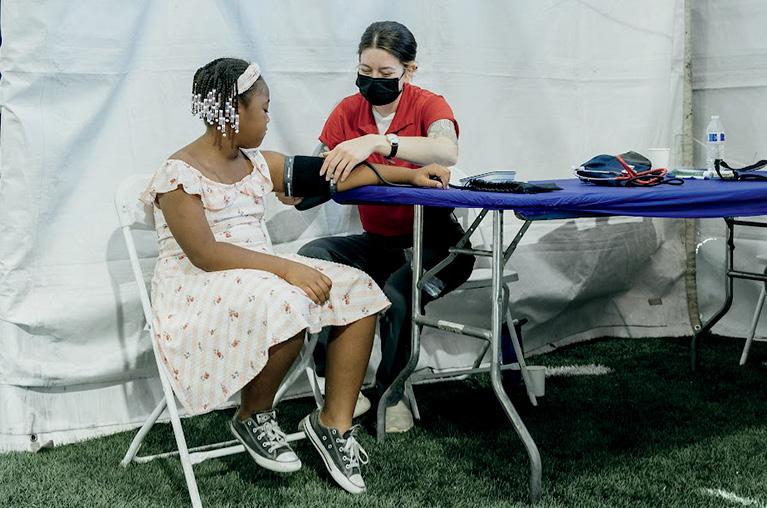
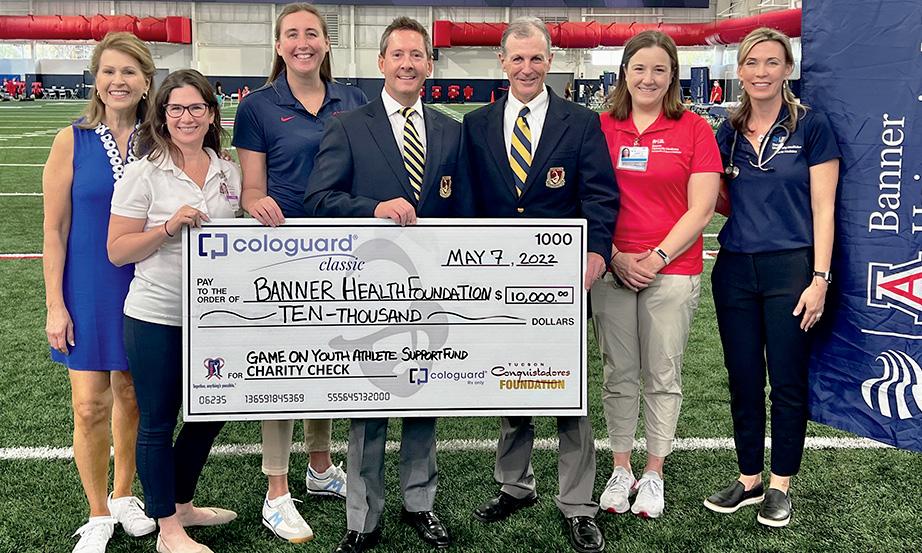
To support this program, visit give.bannerhealth.com/sports and choose Game On Fund from the gift designation menu.
2022 saw a major milestone for the Advanced Heart Failure team at Banner – University Medical Center Phoenix as they performed their 50th heart transplant. This milestone surgery was performed by a collaborative team of experts, including Dr. Modesto Colon Rodriguez, Dr. Mark Tasset, Dr. Francisco Arabia, Dr. Li Zhang, and Dr. Paul Simmonds. Since then, another 20 heart transplants have been performed.
Supported by philanthropic gifts, the Banner Heart Institute and the Advanced Heart Failure Program launched in 2020. The Heart Institute is home to the only fully comprehensive heart failure treatment center in Arizona, providing state-of-the-art care— from disease prevention to transplant.
To support the Heart Institute, visit give.bannerhealth.com/heart.
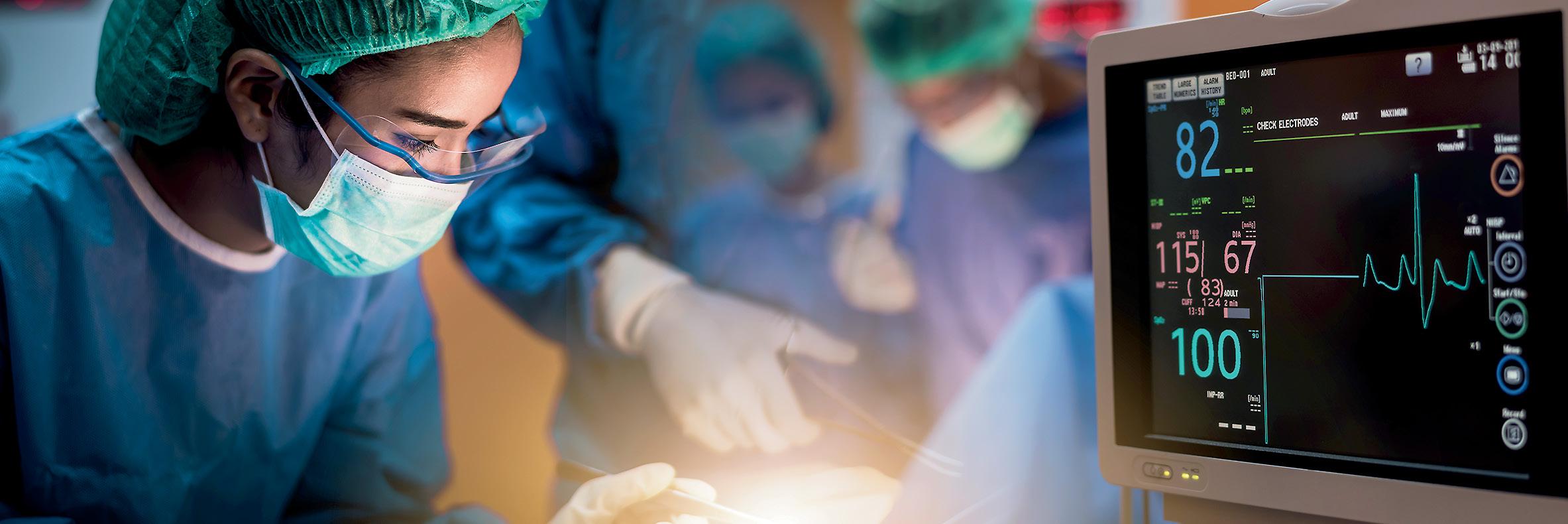
Child Life Specialists work with a young patient and her mother to find the best position and activity to keep her comfortable during medical procedures.

Behind the scenes at Diamond Children’s Medical Center is a team of unsung heroes who make life better for young patients and families: Certified Child Life Specialists. These professionals are educated and clinically trained in the developmental impact of illness and injury. In both health care and community settings, Child Life Specialists help infants, children, teens, and families cope with the stress and uncertainty of acute and chronic illness, injury, trauma, disability, loss, and bereavement. They provide evidence-based, developmentally and psychologically appropriate interventions, including therapeutic play, preparation for procedures, and education to reduce fear, anxiety, and pain.
Without these interventions, stressful and traumatic experiences in medical settings can cause kids to feel fear, confusion, loss of control, and isolation that can inhibit their development and have negative effects on their physical and emotional health.
Diamond Children’s Medical Center logs
14,000 of these types of interventions each year. Nearly half of the Child Life Program’s expenses are funded by generous donors and community partners, who believe in the value of this important work. In 2022, an additional three Child Life Specialists joined the Diamond Children’s team, thanks to community support.
One of the most common interventions in Child Life involves preparing children for “poke” procedures—those involving a needle, which can be scary for children. McKenna, a Child Life Specialist at Diamond Children’s, shared that “we now take several steps to make a poke procedure less traumatic and more positive for both the patient and family. My favorite responses after these procedures are the child saying, ‘Wait, you’re done already?’ with a look of shock, or ‘I didn’t feel that at all!’ I love to see the huge, proud smile on their face or on the parents’ faces, realizing their little one didn’t cry during the poke for the first time in their life.”
Byeong, a Child Life Assistant, remembers a young patient who was extremely fearful of any medical staff being in the room with her. No matter what toys were introduced, the young patient would continuously cry. “After many days of trying different toys, she was actually interested in playing with kinetic sand,” Byeong recalls. “So, I brought in more kinetic sand-related toys, and she began talking to me slowly. Then, more and more… and I began to see her smile. Her parents told me they hadn’t seen her smile for a long time and thanked me for bringing that smile back to her life and to her family.”
To support the Child Life program at Diamond Children’s, visit give.bannerhealth.com/bannerchildrens and select Child Life – Diamond Children’s from the gift designation menu.
A young man in his 30s, his life in front of him, Mark* was faced with a challenging cancer diagnosis and was too ill to work during treatment. Mark and his wife were also expecting a baby, and his wife’s health was fragile as well—making her unable to continue her job at a restaurant. Combined, they had limited financial resources and were afraid of losing their apartment. Thankfully, Mark was able to apply to the University of Arizona Cancer Center Patient Assistance Fund in Tucson and received vital financial assistance with their rent.
The UACC Patient Assistance Fund helps patients like Mark, who find themselves not only facing cancer and its often grueling treatments, but also loss of income due to missed work. Sometimes, retired couples living on their life savings can find that savings wiped out while battling cancer due to unforeseen expenses and the cost of certain treatments, like radiation, that may not be covered by insurance.
Banner – University Medical Center
Tucson’s Burn Program hosted an open house and ribbon cutting ceremony in October 2022 to showcase its augmented inpatient and outpatient adult and pediatric burn services, made possible in part by charitable investments from donors. The Burn Program was bolstered in 2022 by a grant of $87,647 from the Catholic Foundation Diocese of Tucson.
Located within southern Arizona’s only Level 1 Trauma Center, the Burn Program treats patients with minimal burn wounds to those whose injuries cover 99% of their body. The multidisciplinary medical team includes fellowship-trained burn surgeons, board-certified trauma experts and intensivists, critical care
The Patient Assistance Fund can help patients in need with utility bills, transportation to appointments, and local lodging for those who live out of town. In addition, the fund also helps with supportive care services, such as oncology massage, wigs, cold caps, mastectomy supplies, and lymphedema treatments and supplies.

The fund was established 25 years ago thanks to a gift from a patient going through cancer treatment. Meeting fellow patients during their long hours together in the chemotherapy rooms, she learned of their financial struggles as a result of their illness. She was truly motivated to do something to help. Each year, 80 to 90 patients benefit from this fund and the generosity of big-hearted donors.
To support the UA Cancer Center’s Patient Assistance Fund, visit give.bannerhealth.com/uacc and choose the Patient Assistance Fund from the gift designation menu.
and wound care nurses, occupational and physical therapists, pharmacists, registered dieticians, and Child Life Specialists.
“The critically needed, enhanced burn services we are providing in southern Arizona are thanks to the support of Banner – University Medicine administration, the Department of Surgery, Division of Trauma and generous donors.


Our vision to provide highly specialized burn care within our community is now a reality,” said Lourdes Castañón, MD, FACS, Burn Program director.
To support the Burn Unit, visit give.bannerhealth.com/tucson and select Banner – University Medical Center Tucson from the gift designation menu, adding “Burn Unit” in the Other Designation field.
Approximately one in six children in the United States has at least one developmental disability. Defined as limitations in function, delays in reaching developmental milestones, or lack of function in cognition, motor performance, vision, hearing and speech, and/or behavior, a disability can begin any time during development and usually last throughout a person’s lifetime. Ultimately, these disabilities cause problems with major life activities, such as language, mobility, learning, self-help, and independent living.
Developmental-behavioral pediatricians are board-certified and specially trained to detect a wide range of developmental and behavioral hindrances in children and to give their opinion on treatment options. In order to coordinate treatment, this specialized type of pediatrician works collaboratively with a team of professionals, which may include a psychologist, speech-language pathologist, occupational therapist,

physical therapist, neurodevelopmental disabilities pediatrician, child psychiatrist, child neurologist, or clinical social worker.
Banner Children’s recognizes the need to increase access to care through developmental pediatricians and believes every child in Arizona deserves the very best care for their needs.
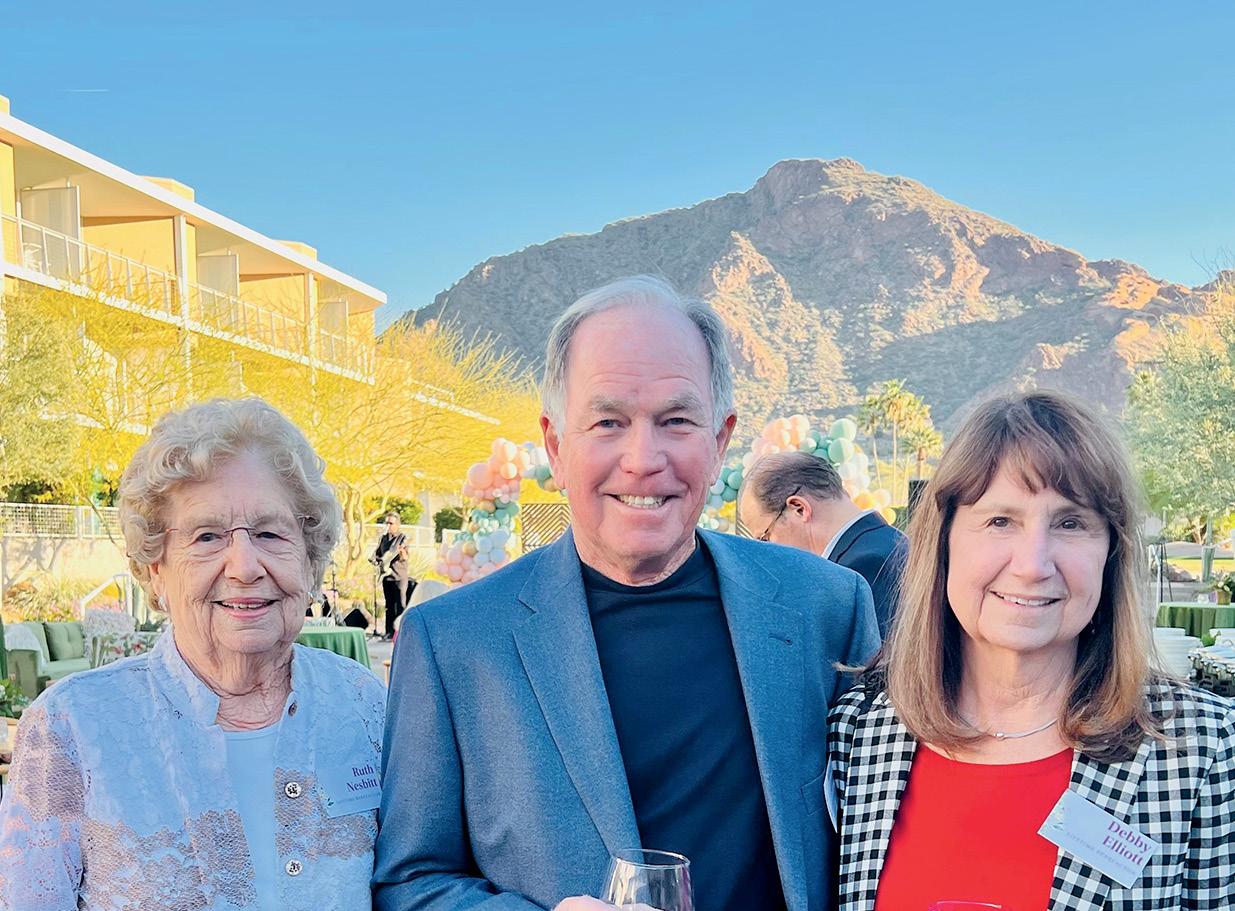
Through a generous charitable gift from longtime Mesa resident Ruth Nesbitt and her family, Banner Health is set establish a developmental pediatrics clinic in the East Valley to help meet the needs of children in our communities with developmental disabilities. At 93, Ruth views this gift as the “crown jewel” of her charitable giving and is touched by the opportunity to make this signature gift even more so, as her own granddaughter and more than one great-grandchild are affected by developmental issues.
Opening in April 2023 in Tempe near Banner Desert Medical Center, the Banner Children’s Developmental Pediatrics Clinic will provide comprehensive assessments of children who present with developmental delays (cognitive, social-emotional, motor, speech and language), disruptive behaviors, and challenges with attention and learning. The Clinic will also provide comprehensive, supportive pediatric health care to children with developmental behavioral disabilities, learning disabilities, neuro-developmental disorders, autism spectrum disorders and Down Syndrome. Most importantly, these children will be surrounded at the Banner Children’s Developmental Pediatrics Clinic with the necessary medical experts they need to lead a healthy life in one location throughout their childhood.
To support the Banner Children’s Developmental Pediatrics clinic, visit give.bannerhealth.com/bannerchildrens.
Ruth Nesbitt (left), with her daughter, Debby Elliott, and son-in-law, Mike Elliott, at the Banner Health Foundation’s annual Evening of Gratitude reception. The Nesbitt family’s generous gift will make a developmental-behavioral pediatrics clinic a reality in 2023.The hospital experience has become more joyful for young patients and teens at Banner Children’s Medical Centers in Arizona, thanks to a range of programs and projects supported by the Dunkin’ Joy in Childhood Foundation —the charitable foundation supported by Dunkin’ franchisees, guests, vendor partners and employees.
In partnership with Dunkin’, a Roaring ’20s-themed prom was held in April 2022 at the University of Arizona football stadium for patients of Banner Children’s at Diamond Children’s Medical Center in Tucson. Teens enjoyed a magical night filled with fun foods, a photo booth, gift bags, games, and other surprises. As a special treat, inspiring messages were delivered from UA coaches on the giant screen.
Kids who are dealing with an illness and routinely hospitalized may not get the chance to experience this high school rite of passage. Because of that, these teens did not take for granted their special prom and expressed extreme gratitude for all who made the event a dream come true.
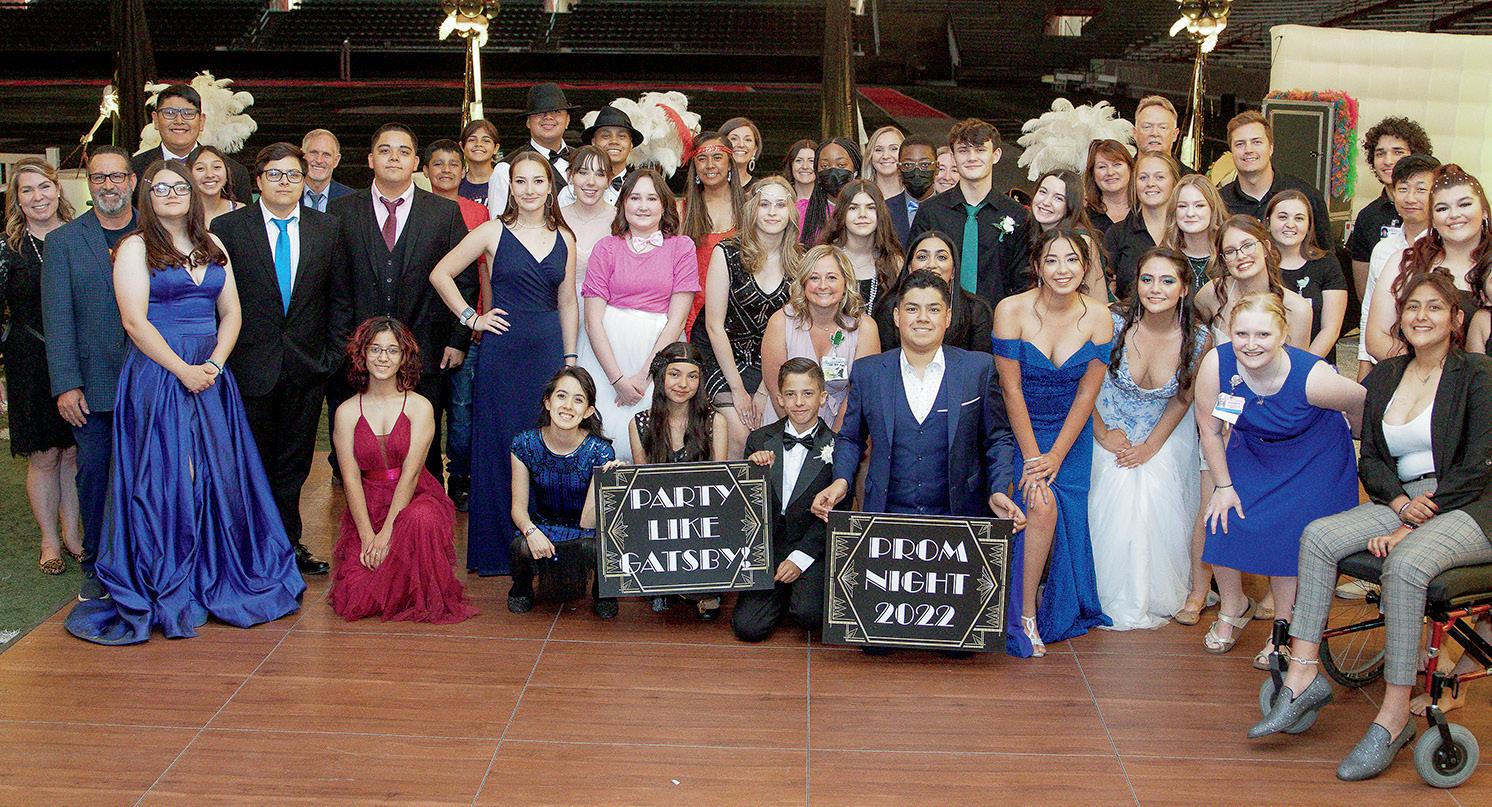
Diamond Children’s teen patients enjoyed a Roaring ‘20s-themed prom last spring, thanks to the Dunkin’ Joy in Childhood Foundation.
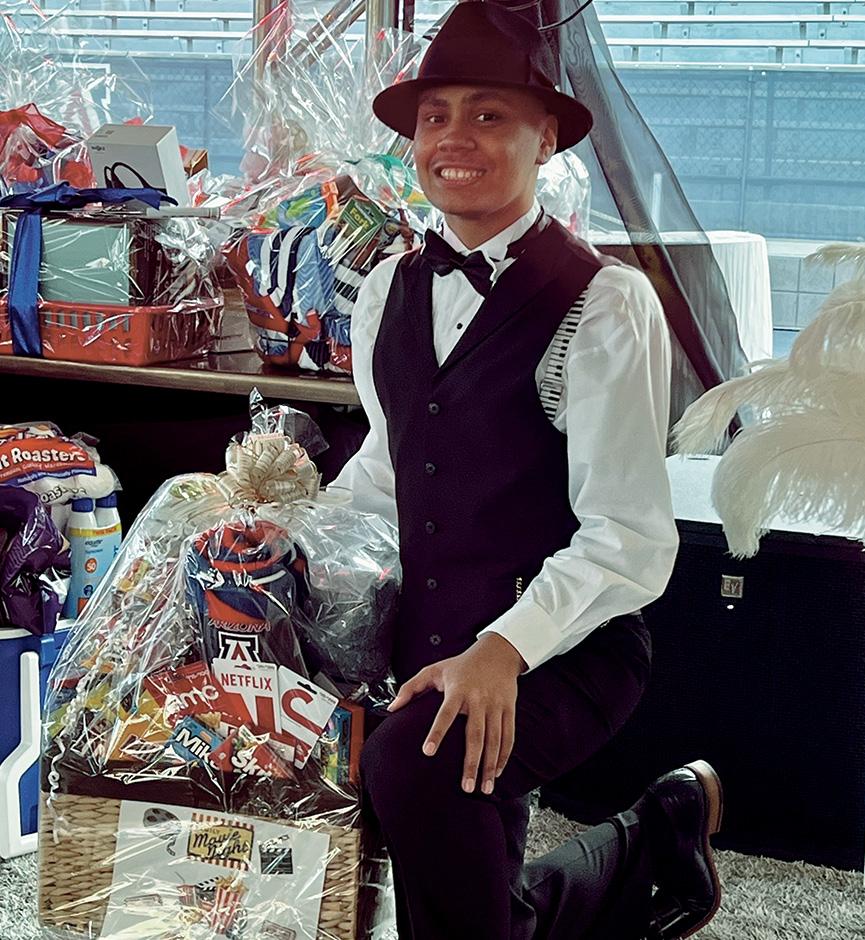
Additionally, for Diamond Children’s patients, a new teen lounge opened in May, offering patients areas to sit and relax, socialize with other teens, or just watch TV. Funded by the Dunkin’ Joy in Childhood Foundation and the Starlight Foundation, the brightly decorated space is designed to ease stress and support the overall health and well-being of patients. Additional technology, including a gaming system, will be added soon.
When Banner Children’s music therapist Sarra Erb met 7-year-old Hazel* for the first time, she knew two things: Hazel was recently diagnosed with cancer and she was quite shy.
“I sang one of her favorite songs from Frozen and played lots of wacky instruments,” Sarra explains. “She did appear shy and withdrawn. But slowly, she sang along every so often in a soft and quiet voice.” The following day, Hazel saw Sarra walking toward her room and started jumping up and down and waving her arms. “The nursing staff, Child Life, and doctors were stunned. They’d never seen Hazel so engaged, so happy, and full of energy.”
That’s the power of music. And why music therapy is such an important focal point of fundraising for pediatrics—as the program is supported fully by charitable gifts.
“I’ve seen music therapy change lives in the hospital. It truly helps remind families that kids can be kids here,” says Sarra. “We strive to normalize this unusual setting for children by providing them ample opportunities for meaningful activity.”
To support music therapy at Banner Children’s, visit give.bannerhealth.com/bannerchildrens and choose Music Therapy in the gift designation menu.
*Name changed to protect patient privacy

Opened in February on Camelback and 44th Street in Phoenix is the new Banner Health Center Plus - Arcadia. The second of Banner’s newest facility type, this new approach to ambulatory care offers a convenient and positive experience for patients. The 70,000-square foot, two-story building has 60 exam rooms and six infusion bays. Multiple services and specialties will be available in this single location, including urgent care, imaging (X-ray, MRI, CT scans, ultrasounds, mammography, DEXA bone scans), sports medicine/orthopedics, physical therapy, lab, outpatient surgery, neurosciences, endocrinology, pulmonology, otolaryngology, women’s health, cardiology, gastroenterology, rheumatology, infusion services, and primary care. The new Stead Family Center for Normal Pressure Hydrocephalus will also be located here.
Banner Health will open a new sports medicine center this summer near the Salt River Pima-Maricopa Indian Community areas near Top Golf and Salt River Fields at Talking Stick. In partnership with the Arizona Diamondbacks, Phoenix Suns, Phoenix Mercury, and the University of Arizona, Banner Sports Medicine Scottsdale will provide sports medicine and orthopedic care, athletic performance training, plus a surgery center, physical therapy, imaging, a concussion center, nutrition counseling, and sports psychology. These services will be available to everyone, from Little League and youth soccer players to high school and college athletes, from professional athletes to active adults.
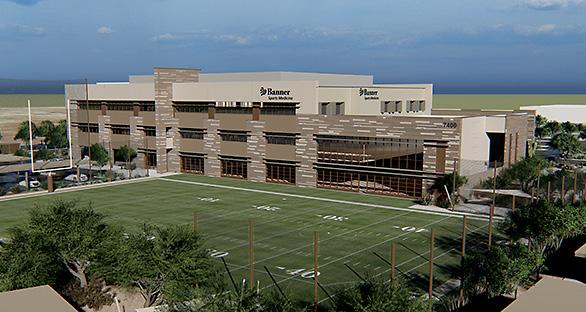
Construction is underway on a new, comprehensive medical center in the Southwest Valley of metro Phoenix. The newest hospital is slated to open in Buckeye, Ariz., in 2024. The four-story, 330,000-square-foot hospital will be located on the northwest corner of Verrado Way and the I-10 freeway, adjacent to the existing Banner Health Center. The Southwest Valley is one of the fastest growing segments in Maricopa County, with Buckeye and the surrounding areas representing a significant portion of the growth. In addition to the rapid growth of the overall population, Banner also has approximately 100,000 members in its Banner Health Network insurance organization that reside in the Southwest Valley. They participate in value-based health plans that require convenient and affordable care.
The hospital is expected to open with approximately 120 beds and offer imaging, surgery, labor and delivery, intensive care and an emergency room. The hospital will have room for expansion, with a potential build-out of more than 300 beds as the community grows and requires more services.
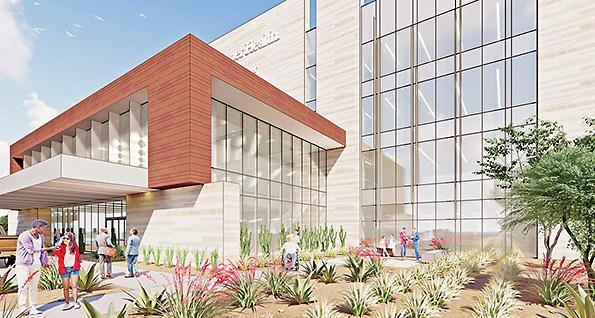
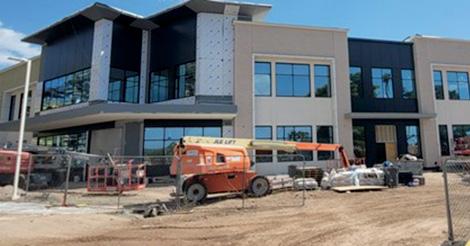
Demonstrating high performance, cost-effective fundraising, and adherence to industry best practices.
